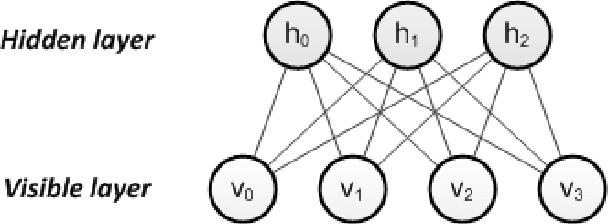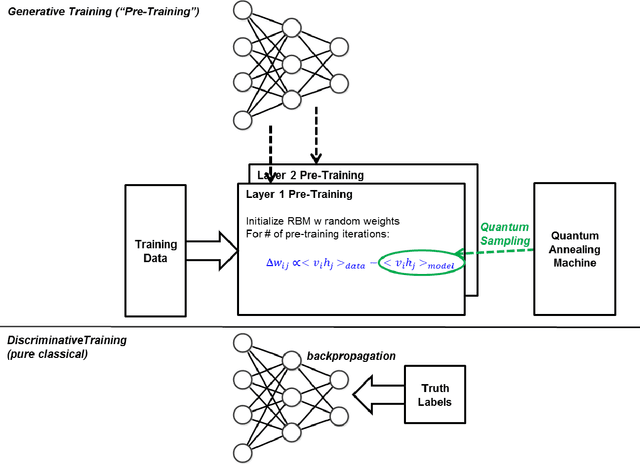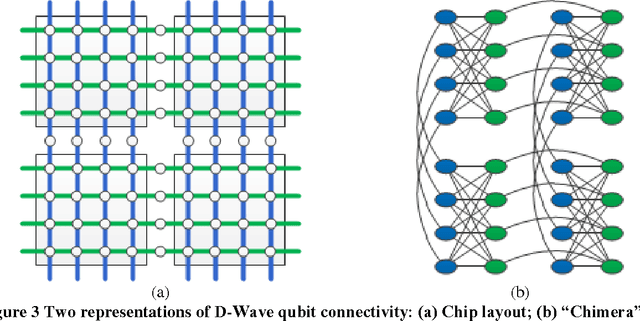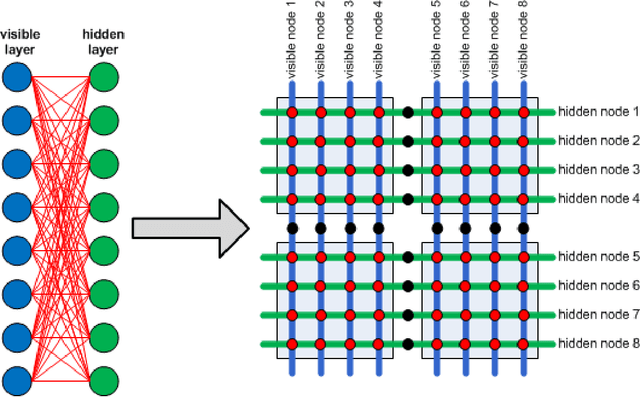Application of Quantum Annealing to Training of Deep Neural Networks
Paper and Code
Oct 21, 2015



In Deep Learning, a well-known approach for training a Deep Neural Network starts by training a generative Deep Belief Network model, typically using Contrastive Divergence (CD), then fine-tuning the weights using backpropagation or other discriminative techniques. However, the generative training can be time-consuming due to the slow mixing of Gibbs sampling. We investigated an alternative approach that estimates model expectations of Restricted Boltzmann Machines using samples from a D-Wave quantum annealing machine. We tested this method on a coarse-grained version of the MNIST data set. In our tests we found that the quantum sampling-based training approach achieves comparable or better accuracy with significantly fewer iterations of generative training than conventional CD-based training. Further investigation is needed to determine whether similar improvements can be achieved for other data sets, and to what extent these improvements can be attributed to quantum effects.
 Add to Chrome
Add to Chrome Add to Firefox
Add to Firefox Add to Edge
Add to Edge